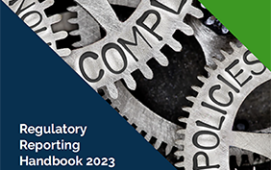
 By Joe Jowett, CEO and co-founder of StrikeX.
By Joe Jowett, CEO and co-founder of StrikeX.
‘Take back control’ may have been the mantra of politicians in recent years, but in the world of financial planning it runs deeper. It represents how many people are taking greater control of their investments and financial affairs to boost their income or build up their savings.
Alongside, the conversation around cryptocurrencies and non-fungible tokens (NFTs) has grown amid increased awareness of digital assets and the need to actively manage their finances sooner rather than later, particularly among the younger generation of investors – Millennials and Gen Z. And with that has come unprecedented growth and widespread usage of digital trading platforms.
Retail stock trading volume is above pre-pandemic levels, but most of the new trading accounts are now created on digital platforms. Last year, global e-trading volume topped $8 billion. At the same time, the global cryptocurrency market is now worth in excess of $3 trillion – going from zero to that level in just over 10 years is impressive by any standards.
For new and existing investors, a digital trading experience that offers borderless 24/7 market access, near real-time transactions, no intermediaries and low or no costs – while being completely secure – is what they seek as they break with traditional financial service providers. This is what tokenised asset trading platforms bring to the market.
Blockchain technology is now entering the mainstream. It’s a technology that has opened the door to almost unlimited innovation. Chief among this is the concept of tokenisation, which offers the potential to unify all asset classes and make them easily tradeable. It’s paving the way for a profound transformation for the market.
Any asset, be it stocks, bonds, property, a painting, music or anything else that is tradeable, can be tokenised using blockchain technology. Tokenised assets with a real-world value can be fractionalised, allowing investors to purchase partial shares, making diversification possible at a lower cost, thereby opening-up to small investors markets traditionally accessible only to a limited number of insiders.
Fractionalisation helps inject liquidity
Fractionalisation injects liquidity into traditionally illiquid assets, such as commodities, antiques, or real estate, as the trading parties only need a digital representation of their share of the asset to establish ownership. Where these asset classes previously required considerable capital from investors, tokenisation provides liquidity and accessibility, democratising the market.
Another advantage is that it allows for all assets to be traded on a single platform, opening the entire market to investors who might otherwise be hampered by having to keep track of multiple portfolios on different platforms. Tokenisation is, in essence, an easier, safer, and faster way to create liquidity across an enormous range of assets.
While traditional models of share trading rely on protracted and lengthy verification processes, token trading is executed on the blockchain, making it a near instant and automated process. This increases efficiency and brings with it a greater level of security and transparency. Transactions using digital tokens are recorded automatically on a distributed ledger, becoming a permanent record of ownership which is visible and verifiable by all.
This negates the possibility of human error or falsification, making the transfer of sensitive assets more secure and transparent. In turn, it resolves the issue of trust, allowing to cut out intermediaries, making tokenised asset trading much more efficient, cheaper, and safer.
Tokenisation needs a platform to maximise its strengths
The benefits of tokenisation are clear but are still to be fully utilised. This technology requires platforms that can offer trading and investment opportunities to a wide customer base. The true strength of tokenisation lies within its potential to unify and provide access to a diversified market consisting of stocks, bonds, digital assets, art, real estate, and much more. The platforms capable of achieving this will be essential to transforming the market.
StrikeX will launch its flagship product TradeStrike later in 2022, to provide this level of access to as many investors as possible. Tokenised assets will be available alongside cryptocurrencies, making cost-effective and efficient trading accessible 24/7, all over the world.
Giving control to retail investors lies at the heart of tokenisation. Providing access to the widest possible range of assets without geographical restrictions is the primary motivation behind the new TradeStrike platform. Combining traditional and crypto markets through tokenisation can democratise the entire financial ecosystem, making trading and investing a fairer and more inclusive activity. It is fast, secure, accessible, and transparent. It is where the future of finance lies.
Subscribe to our newsletter




